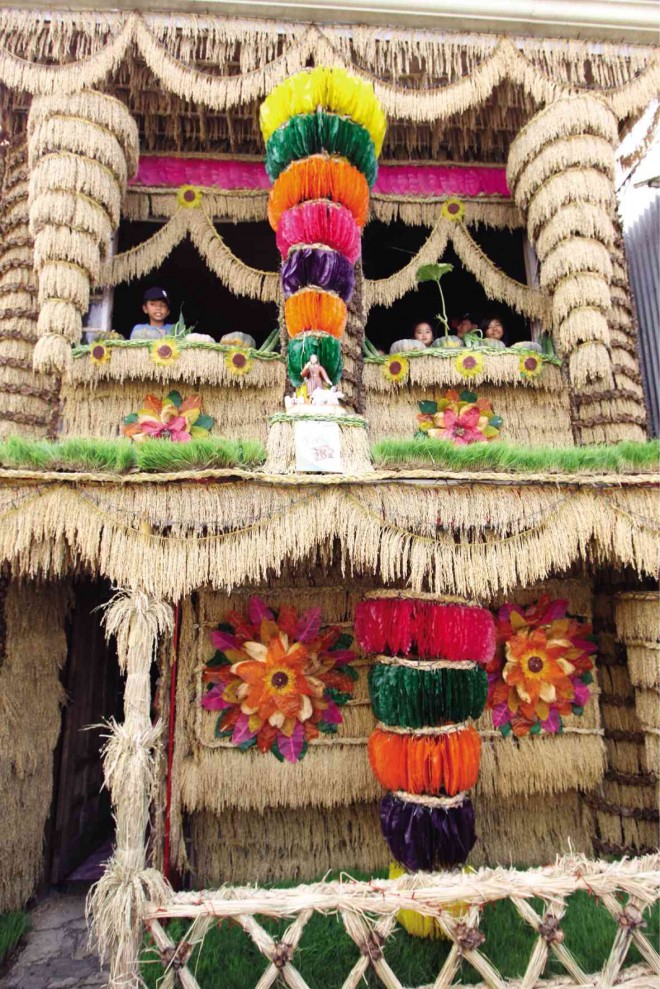Quezon tourists offered ‘complete immersion’

THE PAHIYAS Festival in Quezon, one of the province’s main tourist attractions. DELFIN T. MALLARI JR./INQUIRER SOUTHERN LUZON
A feast over crispy and garlicky “longganisa” in Lucban? How about fresh and frothy “tuba” and “lambanog” in Tayabas town? Or sampling sweet and spicy “chami” in Lucena City?
Tourists trekking to Quezon will get more than food trips under a program of the provincial government to raise to the next level its tourism plan.
The list of places, prospects and attractions for tourists is growing, Gov. David Suarez said. The objective, said the governor, is “complete immersion of tourists.”
Tourists, Suarez said, would be made to experience the fun, colors and lively everyday life of the people of Quezon.
In Lucban, for example, tourists could mix longganisa (native sausage) ingredients themselves, stuff the meat in dried pork intestine, tie both ends, and take it home.
In Tayabas, they may pour tuba (coconut wine) into a stainless container and help make the popular lambanog. City slickers on a nature adventure may plant mangrove propagules along the coast of Tayabas Bay.
Chami lovers from outside Quezon could also help prepare and cook the popular sweet and spicy noodle dish from Lucena.
Suarez described the tourism project as “rural tourism.”
He said tourists nowadays do not just want to go sightseeing.
“They are now more adventurous. They want real engagement with the locals so they can feel and experience even a slice of their lives,” he said.
Suarez said the more sociable tourists could also interact with coconut farmers and their families.
“They can even participate in copra making with fresh buko juice on the side,” he said.
He said for most tourists, especially foreign guests, the absence of modern amenities and the laid back way of life are more attractive.
“What more if they will have the chance to live and feel the peaceful and rustic life in the countryside?” Suarez said.
Manila-based employees, who are on company outings and conferences, could also experience being part of a growing army of “green warriors.”
“They can plant trees along the Maharlika Highway or even in Sierra Madre or plant mangroves along the stretch of Quezon’s long coastline,” he said.
Genes Glorioso, research, training and tour section chief of the Quezon tourism office, said there are now tourist sites in the province where residents act as tourist hosts and guides.
Suarez guaranteed security to tourists going to Quezon.